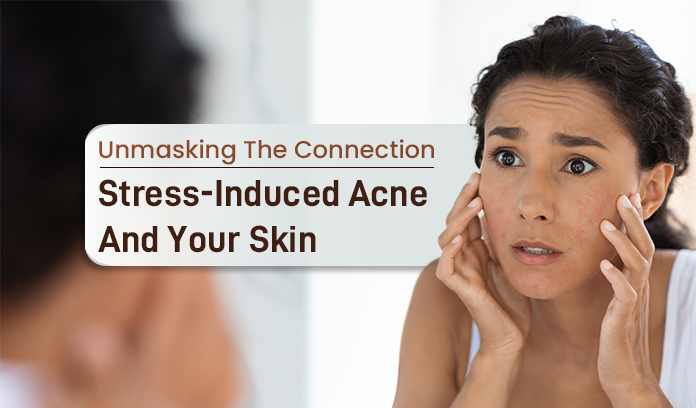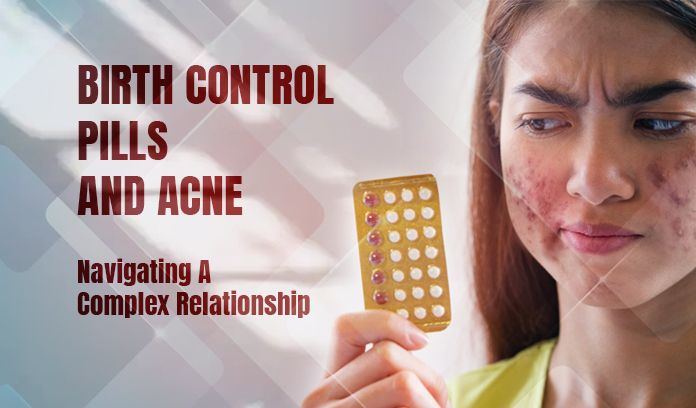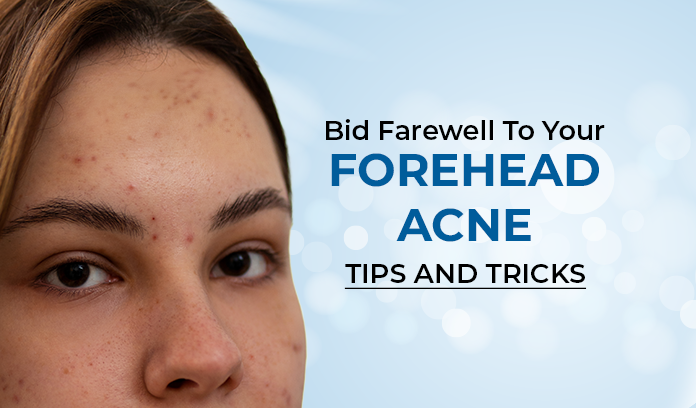The link between mind and skin health is more intricate and complex than we think. What many may not realize is that stress doesn’t just impact our mental well-being—it can also manifest physically, with one notable consequence being stress-induced acne.
In this article, we’ll explore the connection between stress and acne, understand how it affects our skin, and discover effective ways to manage and prevent stress-related breakouts.
Stress Hormones and Skin Reactions
When in stress, our body releases hormones such as cortisol. Elevated cortisol levels and vitamins can stimulate oil production in the skin’s sebaceous glands. The excess oil, combined with dead skin cells, becomes an environment conducive to acne-causing bacteria, leading to breakouts.
Inflammation and Acne Flare-ups
Stress triggers inflammatory responses in the body, and the skin is not exempt from this. Inflammation can worsen existing acne and contribute to the development of new blemishes. Understanding this process helps address stress-induced acne effectively.
Differentiating from other types of Acne
Stress-induced acne often manifests itself as inflammatory papules and pustules, commonly found on the face, chest, and back. Distinguishing these from other forms of acne is crucial for tailored treatment.
Managing stress for Acne
The first step in managing stress-induced acne is addressing the root cause—stress itself. Proven stress management techniques, including mindfulness, exercise, and relaxation practices, are all effective in helping break the cycle of stress-related breakouts.
Adapting your skincare routine
Incorporating stress-friendly skincare practices is crucial. Look out for suitable products, ingredients to look for, and the significance of consistency in your skincare regimen.
Dietary Considerations
What we eat can affect our skin’s resilience to stress-induced acne. Be open to new dietary considerations, exploring foods that boost skin health and those that may worsen stress-related breakouts.
When to consult a Dermatologist
For persistent stress-induced acne, seeking professional help is recommended. It is always wise to consult a dermatologist, who can provide targeted treatments and skincare plans.
Mind-body connection for clearer-looking skin
Holistic approaches, including practices like yoga and meditation, can forge a mind-body connection to help with stress reduction. Discover how incorporating these activities into your daily routine can contribute to clearer-looking skin.
FAQ’s
-
Can stress-induced acne occur in adults, or is it more common in teenagers?
It affects individuals of all ages and groups and is not limited to teenagers. During stressful times, adults may also experience stress-induced acne.
-
Are there specific skin products that treat stress-induced acne?
Look for products with ingredients like salicylic acid and niacinamide. However, individual responses may vary, and consulting a dermatologist for personalized guidance is advisable.
-
Can stress-induced acne be a chronic condition?
For some individuals, stress-induced acne may become a chronic issue. Effective stress management and consistent skincare can help minimize its impact.
-
Can hormonal imbalance contribute to stress-induced acne?
Yes, hormonal fluctuations or an increase in elevated androgens(male hormones) may lead to increased oil production in the skin, combined with dead skin cells. This may lead to acne breakouts. Stress-induced hormonal changes may result in skin issues.
-
Are there long-term effects on the skin if stress-induced acne is not addressed?
Chronic stress and untreated stress-induced acne may contribute to long-term skin issues, including scarring. Seeking timely treatment is essential for maintaining skin health.
Conclusion
In conclusion, stress-induced acne is a tangible outcome of the complex interplay between our mental and physical well-being. By understanding this connection, adopting effective stress management strategies, and personalizing our skincare and lifestyle choices, we can break free from the cycle of stress-induced breakouts and nurture healthier, clearer-looking skin.











